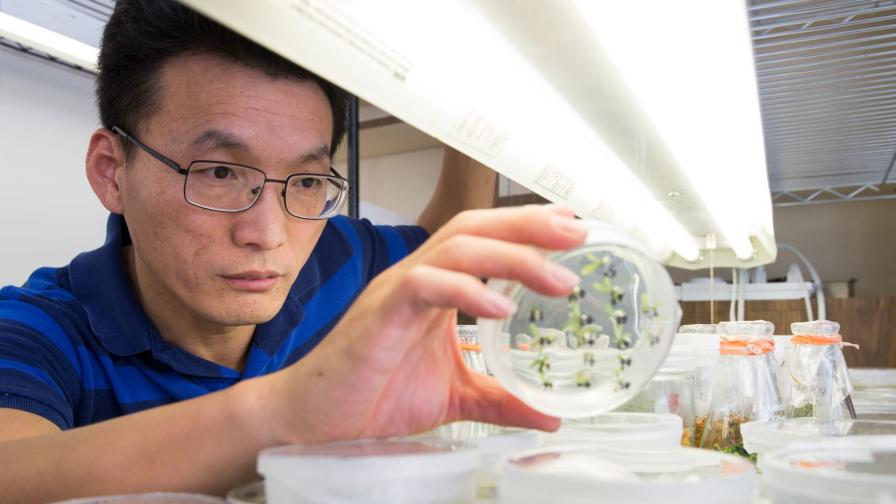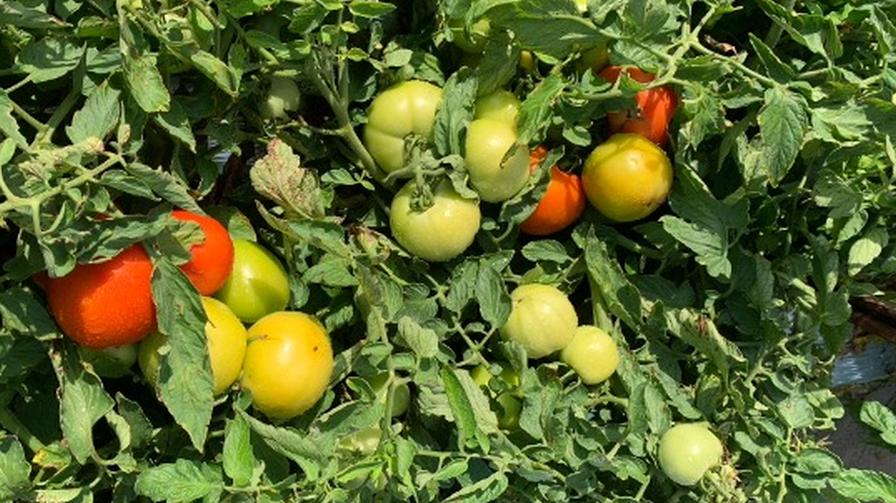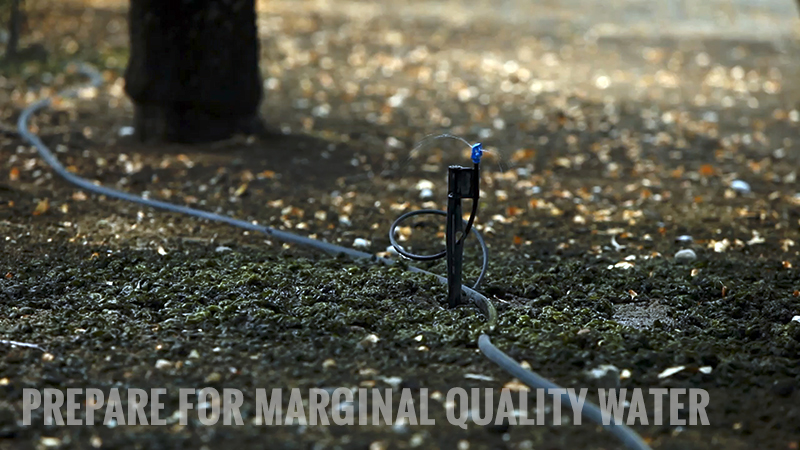Journey into Citrus Microbiome Could Yield Big Plant Health Potential

Nian Wang, a UF/IFAS Professor of microbiology and cell science, is part of a project that is aiming to find out beneficial plant health traits that reside deep inside the citrus microbiome.
Photo courtesy of UF/IFAS
Sometimes the biggest research breakthroughs can be found in the tiniest of elements. Such is the case for two University of Florida scientists and their mission to find out how microbes that live deep inside citrus trees might benefit in their natural fight against diseases.
UF/IFAS colleagues Nian Wang and Chris Oswalt will identify the beneficial traits of microbes within plants that have the potential to specifically impact citrus pathogens. The project is funded through a $749,990 grant from the USDA’s National Institute of Food and Agriculture.
“A better understanding of the citrus microbiome and innovative approaches in application are required to engineer the plant microbiome for successful disease control,” Wang says. “This grant will help us gather important information that moves us closer to that goal.”
Microbes can affect plant health and fitness, stimulate plant growth, and protect plants from biotic and abiotic stress. They can live externally on or internally in their host plants. Microbes that live outside their host plants are either epiphytic (living on the plant leaf surface) or rhizospheric (inhabiting plant roots within the soil). On the flip side, microbes that live and thrive inside their host plant are called endophytic microbes.
Endophytic microbes, especially endophytic bacteria, are functional in that they may carry nutrients into plants, modulate plant development, increase the stress tolerance of plants, suppress the virulence of pathogens, increase disease resistance in plants, and suppress the development of competitor plant species. Endophytic bacteria have been suggested to significantly reduce the use of agrochemicals in the cultivation of crop plants.
Successful completion of this project will generate useful information regarding the function of endophytic bacteria. According to UF/IFAS, the grant project includes engineering a synthetic root endophytic bacterial microbiome and a synthetic leaf endophytic bacterial microbiome.
The grant will start this year and run through 2025.









